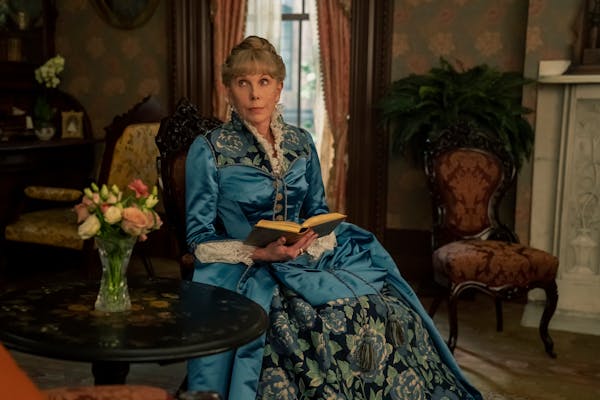"Moonlighting" finally got the respect it deserves, a remastered resurrection now available on Hulu. "Homicide: Life on the Street," "China Beach" and "Chicago Hope" will most likely get the same treatment in the near future.
But we may never see a spiffed-up version of "I'll Fly Away."
That's partly because the show was never a ratings hit, airing on NBC only from 1991 to 1993. It didn't showcase anyone who would reach Bruce Willis-level fame, although leading man Sam Waterston would go on to help launch "Law & Order."
But the bigger reason streaming services are not clamoring to bring back one of the most ambitious dramas in network TV history is the show's content, an unflinching look at race relations in the South during the late '50s and early '60s. Racial epithets fly. A wrestling coach gets fired for integrating his team. Police brutalize protesters. A boy sneaks out of bed just in time to watch his dad try on a KKK outfit.
There's a flawed hero. Waterston plays district attorney Forrest Bedford of a fictional city who handles cases a lot like the one in "To Kill a Mockingbird." But Bedford is no Atticus Finch.
In early episodes, we learn he has attended White Citizens' Councils meetings. He blanches after learning one of his employees is handing out pamphlets that encourage Blacks to vote. He's carrying on an affair with another lawyer while his wife gets treatment at a mental hospital.
But his conscience is eating at him. Over the course of 39 episodes, he slowly becomes a civil rights crusader. Getting there requires gentle nudging from his Black housekeeper, Lilly Harper.
"There's some good things about him," she tells a friend. "Some bad, too."
Harper is played by Regina Taylor in one of the most powerful performances in TV history. Her narration, which bookends every episode, is pure poetry.
"It's like something's coming," she says in an understated tone designed to produce goosebumps. "Like there's a turn in the weather."
Over the course of two seasons, Harper becomes more rebellious — with limits. After scolding an obnoxious white kid for running around the house, the brat rips into her.
"You are nothing and a nobody and don't you ever forget it," he screams. There's nothing she can do about it.
"I'll Fly Away" isn't only focused on race.
Story arcs touch on child abuse, back-alley abortion and alcoholism. Creators Joshua Brand and John Falsey, who were also behind "St. Elsewhere" and "Northern Exposure," are so good at capturing the squawking between parents and their kids you'll swear they were hiding under your table during family dinner. The courtroom scenes crackle. There's plenty of nostalgic nods to the era, like the fact that Bedford's daughter won't take a shower after watching "Psycho."
It's also fun to enjoy the early work of future stars. Samuel L. Jackson, Amy Ryan and Wendell Pierce all pop up. The writing team included Barbara Hall, who would go on to create "Joan of Arcadia," and David Chase, the mastermind behind "The Sopranos."
Finding the series isn't easy. All the network episodes, plus a wrap-up movie that aired on PBS, are available on YouTube. It's a grainy reproduction of when the series reran on the now defunct GoodLife TV network. The screen sometimes goes blank; the sound doesn't always mesh with the picture.
But it's the best way to relish this stupendous series, at least until some streaming service shows the same kind of guts NBC once did.

Review: Hip-hop star Nicki Minaj turns Target Center pink in overdue return to Minnesota



